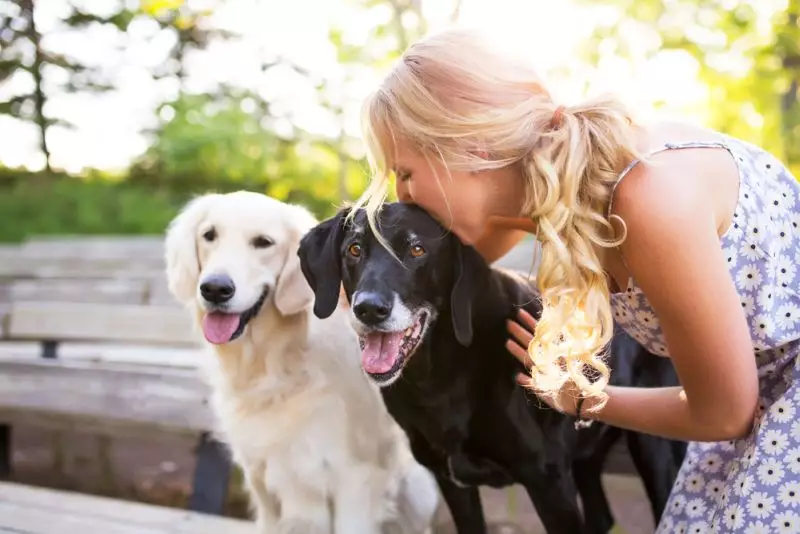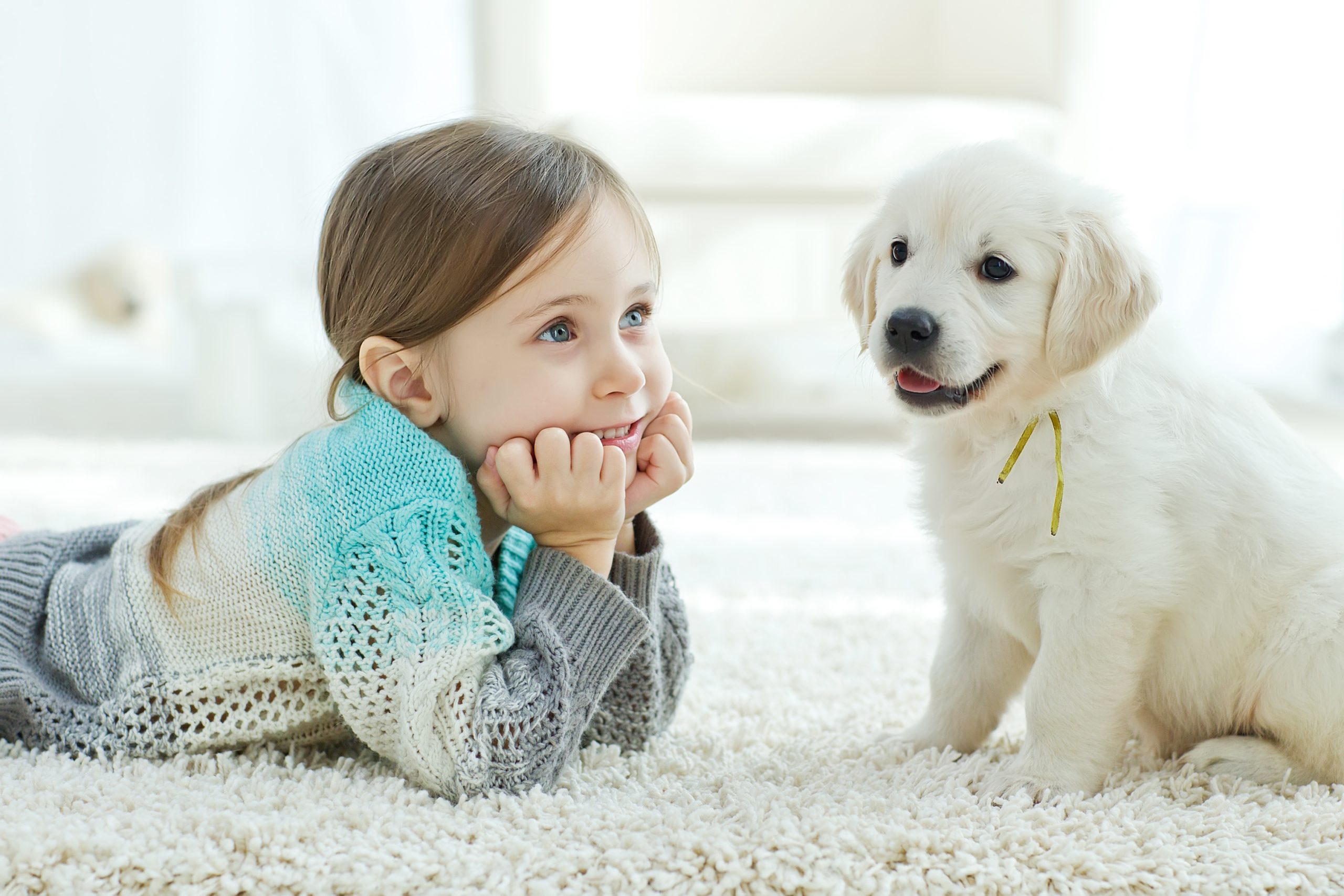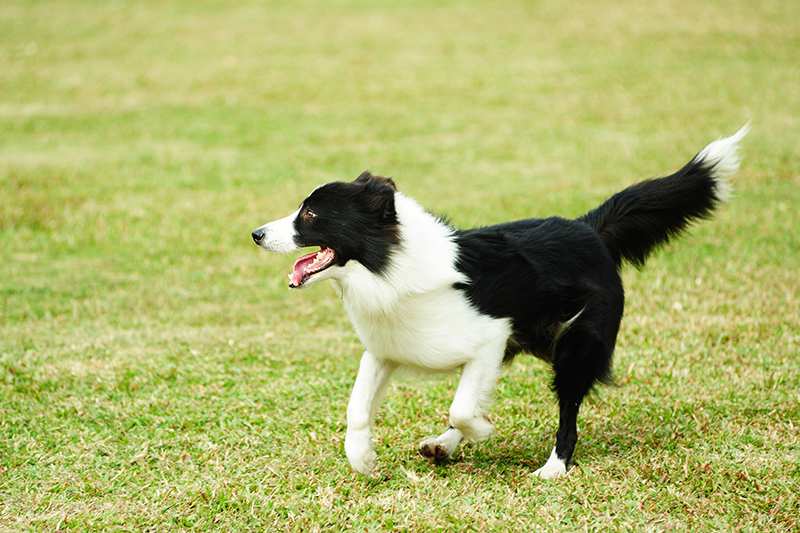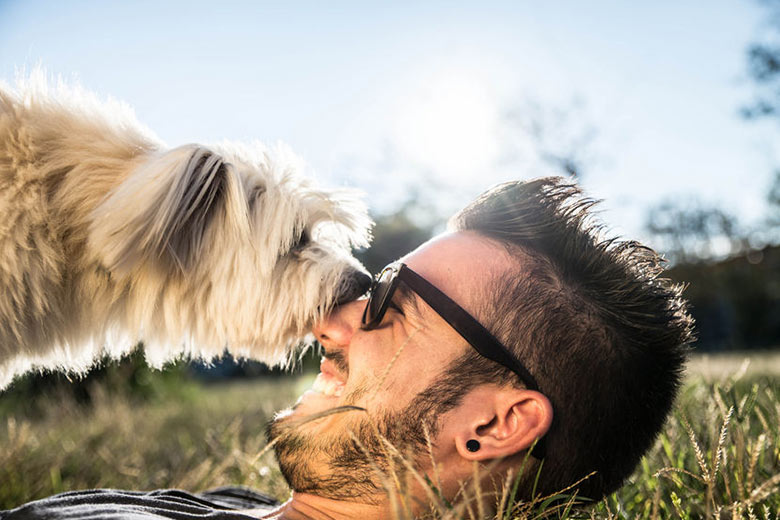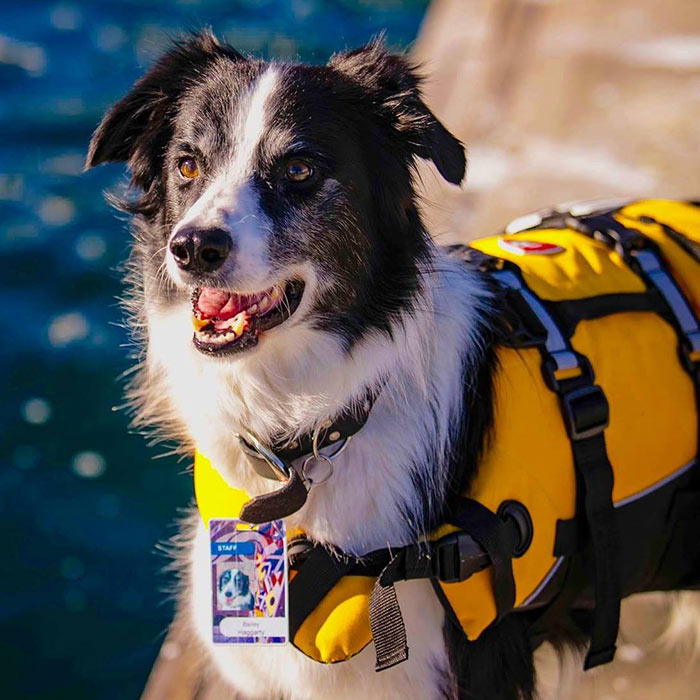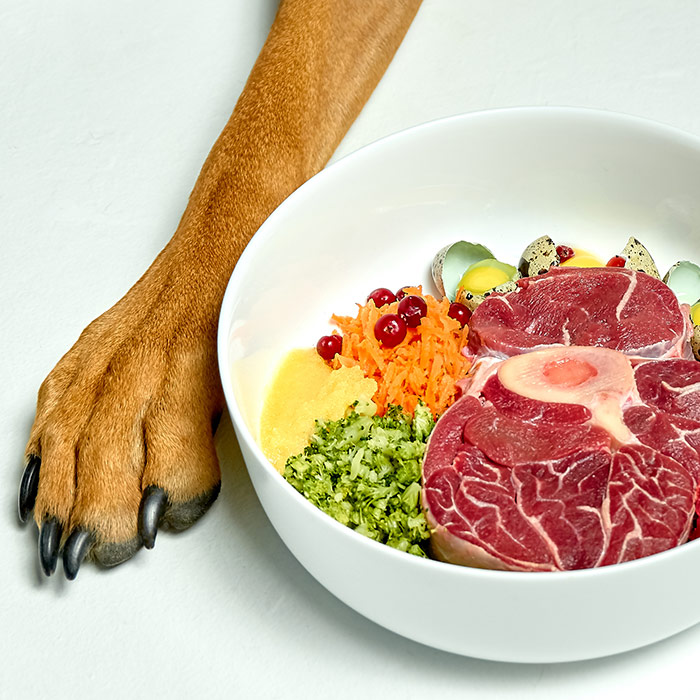Top 10 dog breeds for families
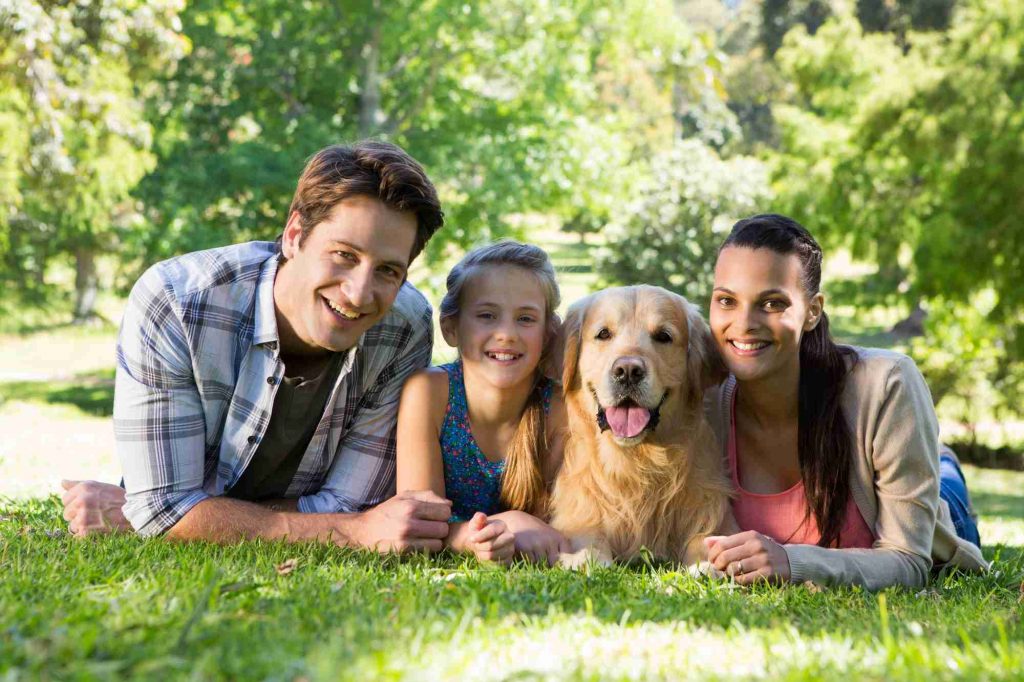
Most of us have wonderful memories of the dogs we grew up with. The way they would never fail to greet us after school, follow us on grand adventures and defend us from swooping magpies, to name a few.
It’s undeniable that growing up with a dog can be a hugely rewarding experience and one we recommend to every family. All families are different, however, and not every type of dog will suit every family.
We understand that choosing the best breed for you and your family is important and that’s why we’ve put together a list of those dog breeds specifically well-suited to families with young kids.
If your childhood best friend isn’t on the list, it doesn’t mean they don’t make good family pets. Because of their size or personality, for example, they may be more suited to slightly older kids.
1. Cavoodle
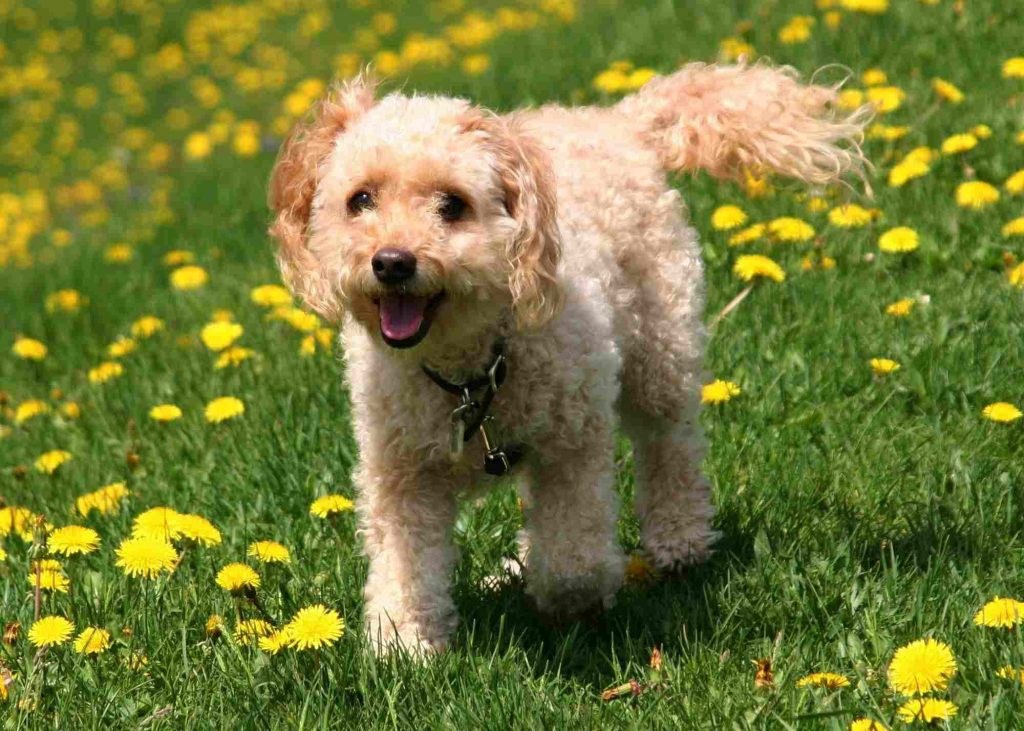
Intelligent, cute as a button and affectionate to boot, the Cavoodle or “Cavapoo” has quickly become one of the most popular small to medium sized dogs in Australia, and for good reason. A cross between the Cavalier King Charles Spaniel and the Poodle, Cavoodles have soft, Poodle-like coats and a temperament that combines the best traits of both parent breeds.
Cavoodles thrive on the company of their family and are great with young children and other household pets. They are highly trainable, obedient and are very easy to teach.
Cavoodles can vary in size and height depending on the size of their Poodle forbearers. Generally they stand at 30 to 35 cm tall and weigh between 5 and 12 kg. Their lifespan is around 10 to 14 years.
Common health issues for Cavoodles
Cavoodles are prone to gastrointestinal issues and anal sac disorders, which occur approximately 25% more frequently than in other dogs. They are also twice as likely to develop mitral valve disease (MVD), possibly due to the genetic predisposition from the Cavalier King Charles Spaniel in their lineage.
2. French Bulldog
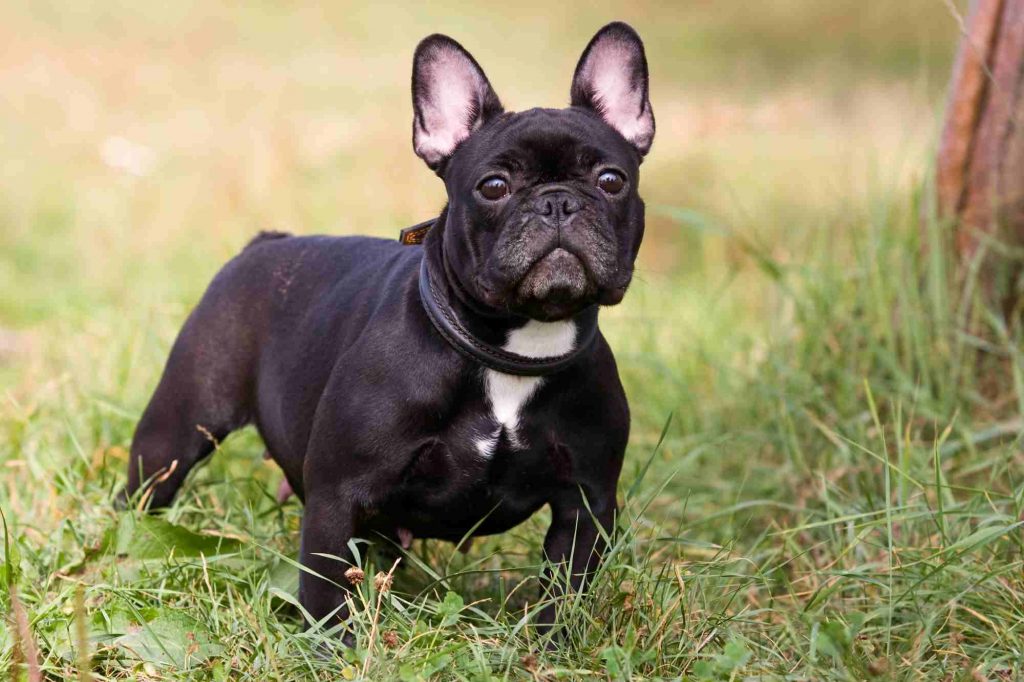
The French Bulldog is a small, friendly and reliable dog that has become a popular choice for Australian families. With a unique appearance and clownish, good-spirited temperament, the Frenchie has a well-deserved reputation for being gentle and playing nicely with kids.
Although energetic ,the breed requires little dedicated exercise beyond a daily walk, consistent human contact is required. Indoor living is a must and they are well suited to apartment living.
A healthy French Bulldog will weigh between 10 – 13 kg and will generally live for between 12-16 years. Be aware that because of their flat faces, they have a higher probability of health issues such as breathing difficulties.
Common health issues for French Bulldogs
French Bulldogs are especially prone to skin and ear issues—twice as likely as the average dog. Their flat faces and small nostrils put them at high risk for brachycephalic obstructive airway syndrome (BOAS), making respiratory problems more than 17 times more likely. They’re also five times more likely to develop intervertebral disc disease (IVDD) and 2.5 times more likely to experience patella luxation.
Learn more about pet insurance options for your French Bulldog.
3. Golden Retriever
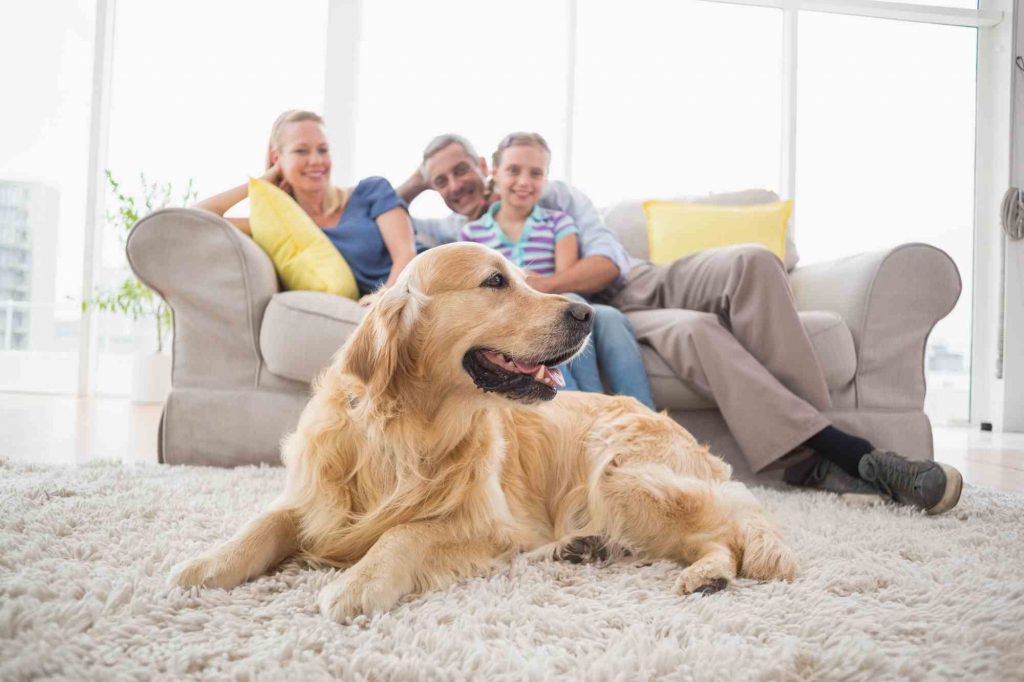
The Golden Retriever is one of the world’s most popular dog breeds and a firm family favourite. With a beautiful golden coat for which it is named, the Golden Retriever is an intelligent, highly trainable and very friendly large sized dog.
Their high level of energy paired with a gentle, even-tempered temperament makes the breed a fantastic companion animal for both young and older kids. Loveable and charming dogs who love to please their owners, they are at their happiest when surrounded by their family, and are often described as the ideal family pet.
Healthy male Golden Retrievers weigh between 29 and 34 kg on average and stand at about 58 to 61cm tall. Females weigh in at 27 to 32 kg and stand at 55 to 57 cm tall. The average lifespan of a Golden Retriever is around 11 to 12 years.
Common health issues for Golden Retrievers
Golden Retrievers are particularly susceptible to skin, ear, eye, and digestive issues. Their long ears trap moisture, inviting infections, while loose skin and droopy eyelids make them sensitive to wind, dust and pollen, increasing the risk of eye problems. They’re also more than twice as likely as other dogs to develop hip dysplasia, leading to joint pain and mobility issues. Plus, their habit of swallowing foreign objects often causes digestive trouble and emergency vet visits.
Learn more about pet insurance options for your Golden Retriever.
4. Labrador
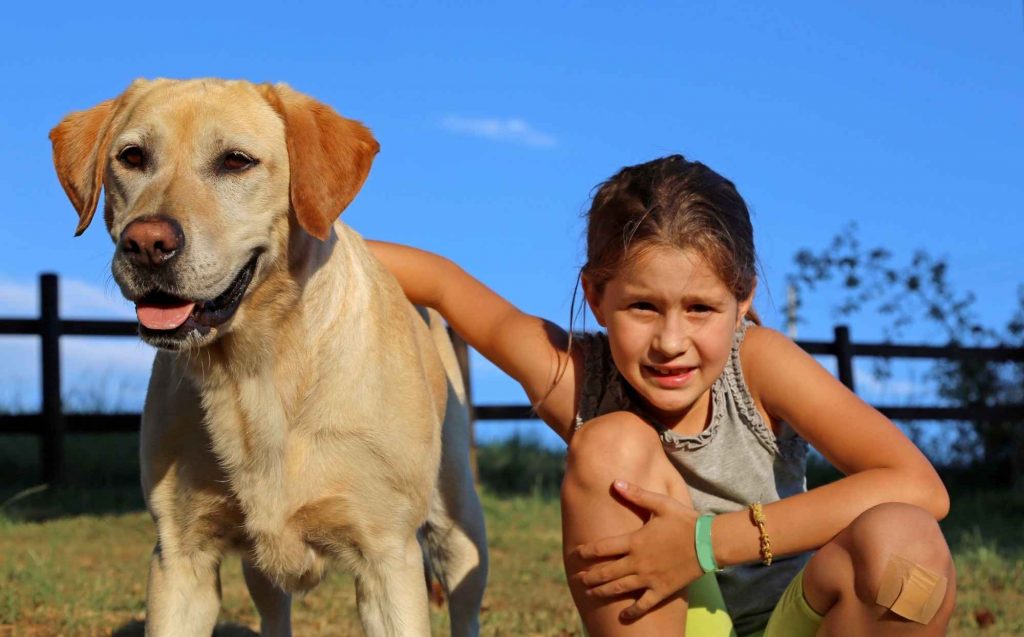
The Labrador is another fantastic Australian family favourite, renown for being a friendly, even-tempered and loyal family companion. Great with children, both young and older, the Labrador is known for its joyful, affectionate and kind demeanour. They are also very intelligent, adaptable and trainable.
Labradors are energetic and high-spirited dogs who thrive with an active family. They bond with the whole family and socialise well with other dogs and people. Labs tend to gain weight quite easily, so exercise and a proper diet are especially important.
Healthy male Labradors should weigh between 29 and 36 kg and stand at about 57 to 62 cm tall. Females should weigh about 25 to 32 kg and stand at 55 to 60 cm tall. Life expectancy in Labradors is around 10 to 13 years.
Common health issues for Labradors
Labradors are overly vulnerable to skin and ear issues and have a 50% higher risk of developing mass lesions, especially mast cell tumors. Their curious nature and eating habits often lead to swallowing foreign objects. They’re also about 1.6 times more likely to develop lameness and arthritis, driven by genetics and weight.
5. Beagle
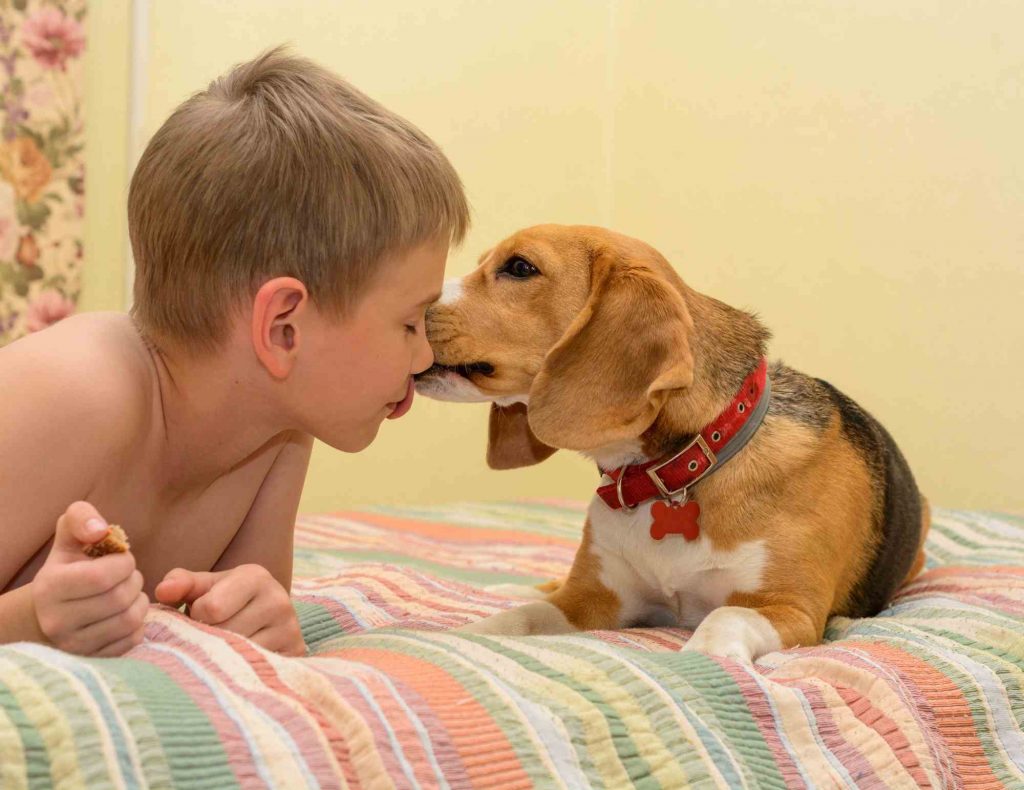
Joyful and playful, Beagles are one of the most popular breeds chosen by families with young children. Known for their gentle and even-tempered nature, they have the perfect balance between energy and docility.
In the home environment Beagles can become easily bored, so stimulation in the form of play time and regular exercise is essential. They can suffer from loneliness or separation anxiety, so it’s important to give them plenty of human attention.
They are very excitable, however, and their advanced sense of smell can cause them all sorts of distractions while down the street or in the park so careful supervision is recommended. Note also that the breed is prone to weight problems if not given enough exercise.
Beagles are generally sized between 33 and 41 cm and weigh between 8.2 and 16 kg. A happy and healthy Beagle will usually live to between 12 and 15 years of age.
6. Border Collie
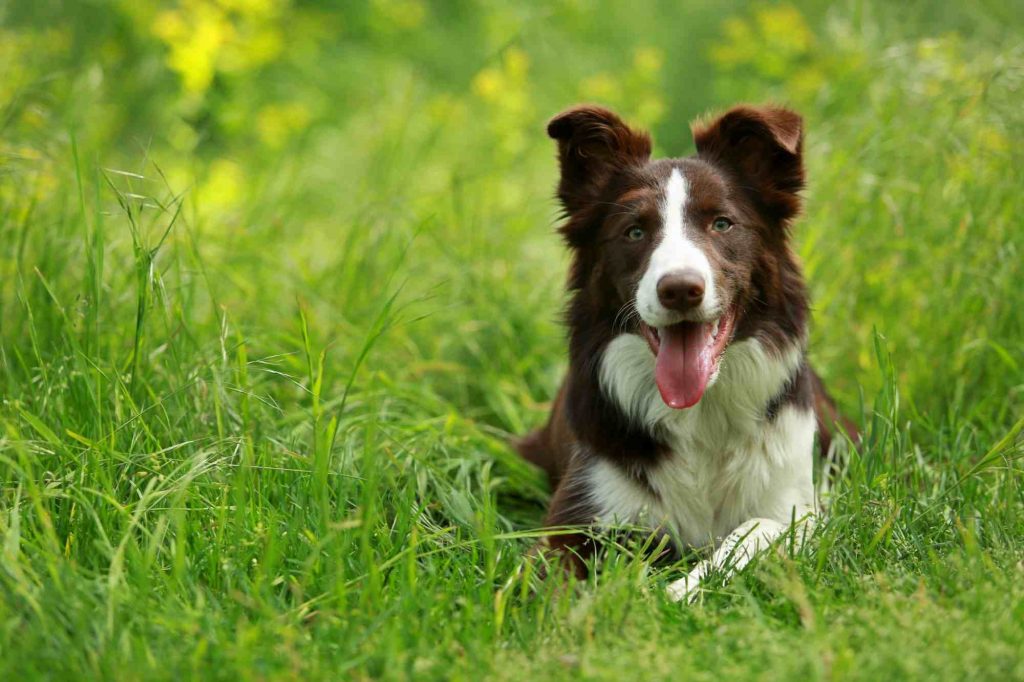
The Border Collie is one of the world’s smartest and most popular dog breeds. With a friendly and obedient nature, the medium-sized Border Collie makes a great addition to the family, with one proviso: as a working breed, it is a highly energetic dog with great stamina, and needs a lot of exercise and mental stimulation in order to thrive.
Border Collies are very protective of young children and, although energetic, will play gently with those in their family. Because of their instinctual desire to herd, they are not ideal for families with other pets.
Healthy males usually weigh between 14 and 20 kg and stand around 48 to 56 cm tall. Females are usually 12 to 19 kg and stand at 46 to 53 cm tall. The average lifespan of a Border Collie is about 13 years, but dogs living longer than 16 years are not all that rare.
Common health issues for Border Collies
Border Collies are generally a robust and healthy breed, but like all dogs, they can be prone to certain health issues. While their risk for hip dysplasia is relatively low, it’s slightly higher than the average (0.5%) at 0.7%. They’re also somewhat more likely to develop arthritis as they age.
Learn more about pet insurance options for your Border Collie.
7. Labradoodle
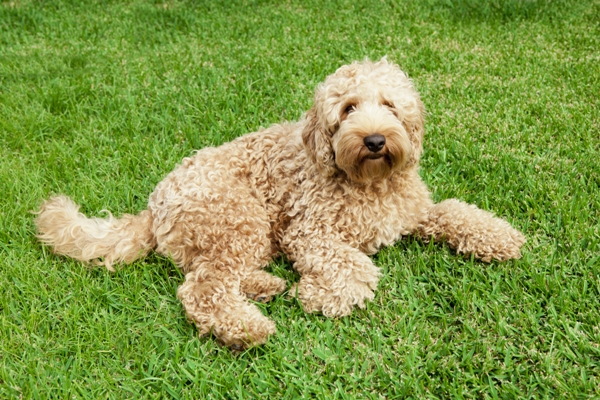
Labradoodles have a fantastic reputation for high levels of tolerance for children, which has rightly earned them a place on this list. The placid and care-free nature of the Labrador, paired with the energetic and playful character of the Poodle makes for an enthusiastic and joyful family companion.
The Labradoodle is a very intelligent dog and requires the attention and care of a devoted family to remain happy and healthy. It is best suited to living indoors with a family who will shower them with attention, and loves to be involved in games and family events. Small children may find the larger Labradoodle a bit of a handful during playtime and, under the age of eight, should be carefully supervised.
Because the Labradoodle is still a young cross breed, size and weight vary, sometimes wildly. Standard Labradoodles tend to grow to about 50cm or more. The average standard Labradoodle should weigh in the vicinity of 23 to 45 kg and will generally live to the age of 12 to 14 years.
Learn more about pet insurance options for your Labradoodle.
8. Golden Doodle (Groodle)
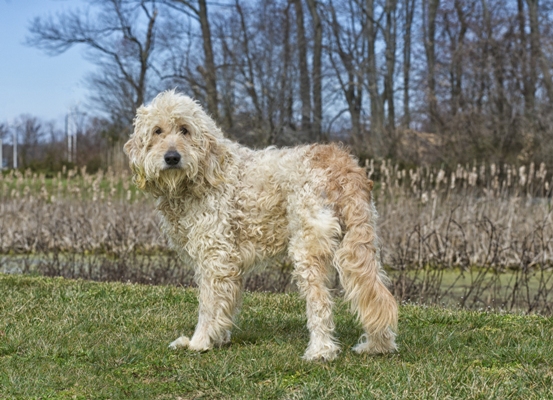
Groodles or Goldendoodles are a relatively new hybrid breed of dog, developed solely for the purpose of companion animal or family pet. A mix of the Golden Retriever and the Poodle, they are highly intelligent family pets who show a great deal of tolerance and loyalty to their owners. They have a great reputation with children, known for their easy going and calm nature.
Goldendoodles tend to be very energetic dogs and require a good deal of exercise. Regular mental and physical stimulation is essential and can come in the form of games. Being very human-orientated animals, Goldendoodles love being involved with the family and need regular human contact to remain happy.
Because the Goldendoodle is a crossbreed, they come in a variety of shapes and sizes. Medium-sized Goldendoodles will grow to between 60 and 66cm and weigh between 13 and 20kgs. Larger sized Goldendoodles can weigh between 23 to 45 kg. A healthy Goldendoodle will usually live to between 12 and 15 years of age.
Common health issues for Groodles
Groodles are more likely to experience skin and ear conditions. Ear issues are nearly twice as common as in the average dog, likely due to their coat type and floppy ears. They’re also slightly more prone to gastrointestinal problems and have a higher chance of developing eye and eyelid issues, including conjunctivitis.
9. British / English Bulldog
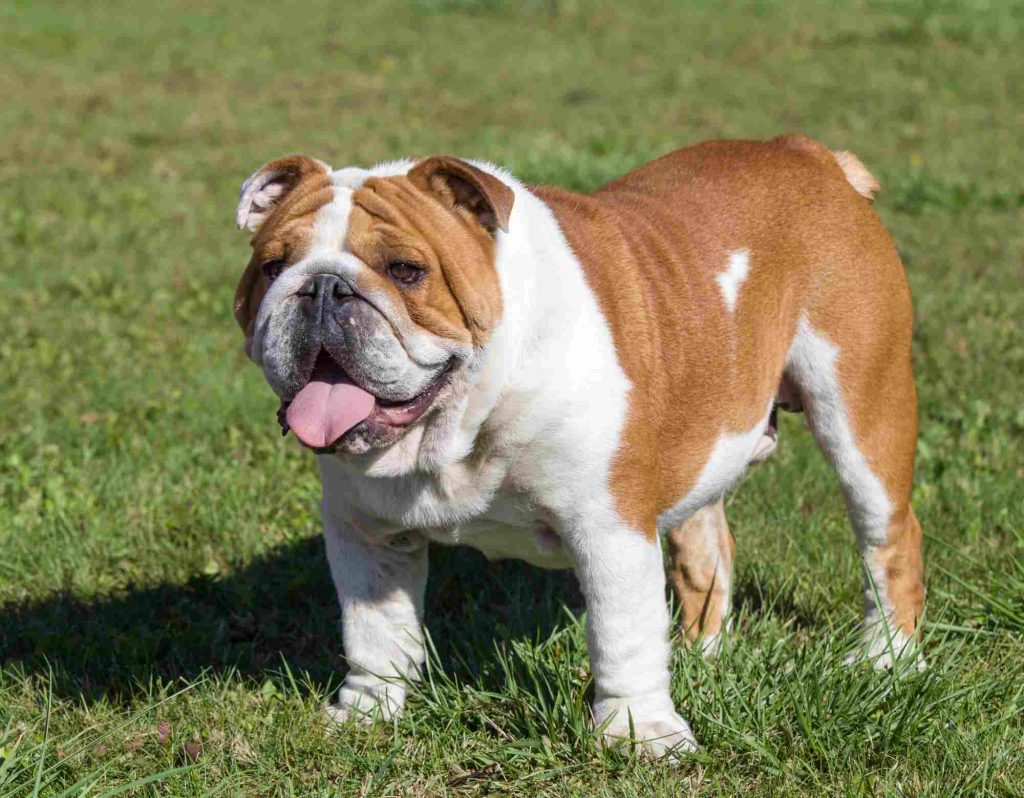
Gentle, personable and affectionate, the British Bulldog makes a fantastic family dog. They may look intimidating to some and absolutely adorable to others, but whatever you think of their looks, the breed has developed a great reputation for gentle play with children and tolerance for other household pets.
English Bulldogs are very people-orientated and crave human attention at all times. Just be aware that because of their flat faces, they have a higher probability of health issues such as breathing difficulties.
The average English Bulldog will grow to between 31 and 40 tall and should weigh in the vicinity of 24 to 25 kg. A healthy and happy English Bulldog will live to between the age of 7 to 12 years.
Common health issues for British Bulldogs
British or English Bulldogs are 14 times more at risk of heat-related illnesses, ranging from heat stress through to heatstroke, according to a research paper from the Royal Veterinary College in the UK. Brachycephalic Obstructive Airway Syndrome and hair loss (flank alopecia) are also concerns for the breed.
Learn more about pet insurance options for your British Bulldog.
10. Miniature Dachshund

Miniature Dachshunds make great family pets and are loyal companions. The “Doxie” as it is affectionately known, has loveable temperament with a bright personality. They love nothing better than curling up under a blanket with their owners and they also love the company of other dogs, especially another Dachshund.
They have an independent nature and this can make training a challenge; persistence and starting when they are young is the key. They also make great watchdogs.
Miniature Dachshunds weigh about 5 kg and they stand at about 13 to 18 cm. They have an average lifespan of 12 to 15 years. While they are suitable for families it is wise to supervise young children because their long backs can be injured if they are not handled with care.
Common health issues for Miniature Dachshunds
Miniature Dachshunds are significantly more prone to intervertebral disc disease (IVDD) and spinal issues—about 4.8 times more likely than other dogs due to their long body structure. They’re also more likely to experience lameness and back pain.
Learn more about pet insurance options for your Miniature Dachshund.
Children and dogs:
- While all the breeds on the list are considered to be family-friendly, children under the age of eight should always be carefully supervised around any breed of dog.
- It is important to teach any young child who comes into contact with a small sized breed to be gentle and that the dog is not a toy.
- Small children may find a large sized breed a bit of a handful during playtime and may be accidently knocked over by a large dog.
- To ensure a well-socialised and family-friendly dog, early socialisation while a puppy and consistent on-going training are highly recommended.
Bow Wow Meow Pet Insurance can help protect you and your dog should an unexpected trip to the vet occur.
-
Find out more about our dog insurance options
-
Get an online pet insurance quote
Bow Wow Meow is proud to have been awarded winner of Canstar’s ‘Most Satisfied Customers’ Award in the Pet Insurance category for both 2024 and 2025!
Bow Wow Meow is proud to have been chosen as Product Review’s Pet Insurance Award Winner every year from 2018 to 2025! This is based on 2,995 independent customer reviews (as at 21/01/2025), with an overall rating of 4.3*
Google Review rating = 4.5* (based on 968 reviews)
Trust Pilot rating = 4.6* (based on 531 reviews)
Bow Wow Meow is proud to have been chosen as Product Review’s Pet Insurance Award Winner every year from 2018 to 2025! This is based on 2,995 independent customer reviews (as at 21/01/2025), with an overall rating of 4.3*
Google Review rating = 4.5* (based on 968 reviews)
Trust Pilot rating = 4.6* (based on 531 reviews)
Bow Wow Meow has been chosen as a winner in the Finder Pet Insurance Awards 2024. Finder’s panel of experts analysed over 140 quotes to award our Ultimate Care Plan the winner of the “Pet Insurance – Value” category.


